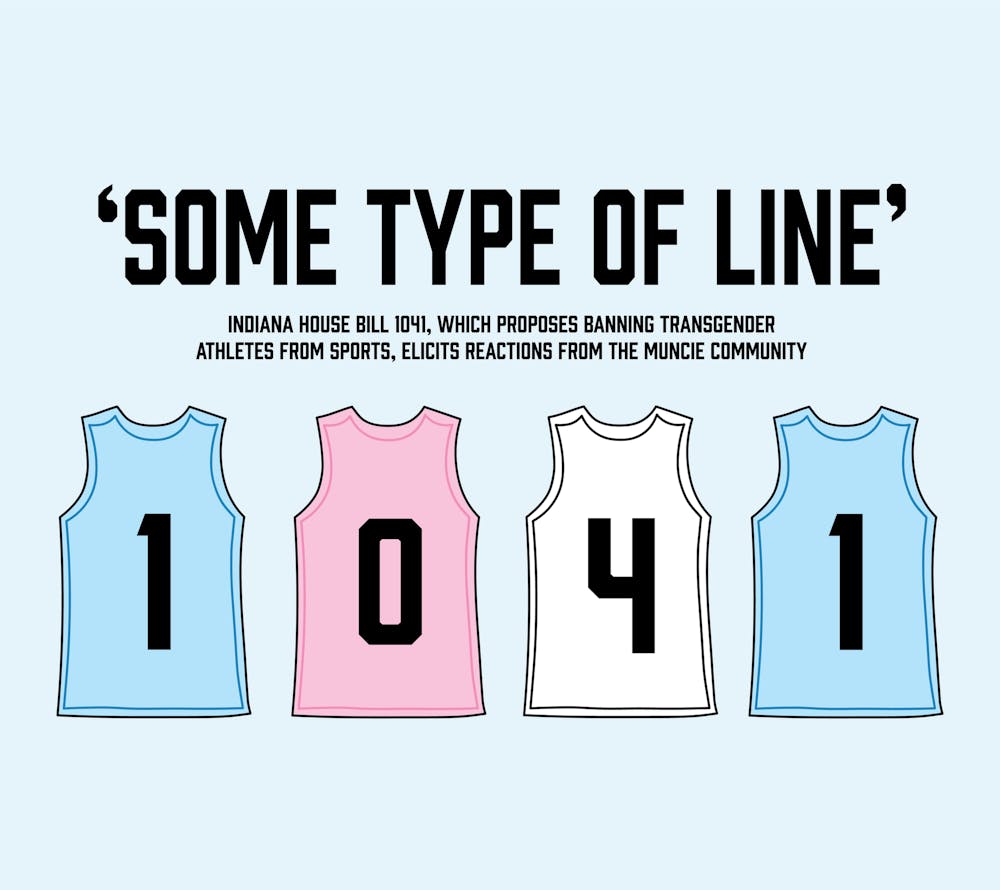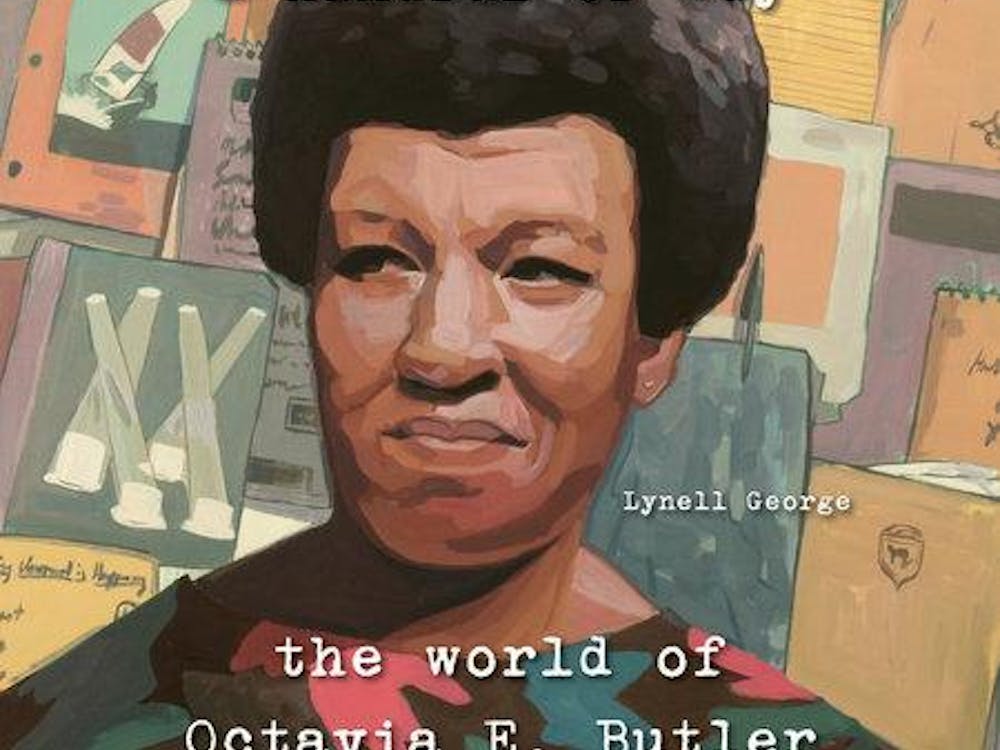Editor's Note: Caroline wished for partial anonymity to maintain job security. The Ball State Daily News reached out to Indiana House Bill 1041 co-authors Rep. Chris Jeter, Rep. Joanna King and Rep. Robert Heaton via phone and email multiple times over multiple weeks. None of them responded before the deadline provided.
Indiana House Bill (HB) 1041 — a bill that would prohibit students, based on the student’s sex assigned at birth, from participating in sports teams that don’t align with their biological sex at the collegiate level — sparked controversial opinions from Muncie community members.
Michelle Davis (R - District 58) authored the bill in early January. It follows Davis’ HB1041 from the 2022 legislative session, which banned transgender athletes from competing in sports that aligned with their gender at the high school level.
“I just want to always stand up for biological women … to have a fair and equal playing field for sports,” she said, drawing from her own experience as a Division I point guard at Ball State University from 1987 to 1991.
She said the experience “shaped” her into who she is today and wants other women to have similar opportunities.
“That's why Title XI was created, to make sure female athletes had a fair and even playing field, because there are biological differences between males and females,” she said. “This is common-sense legislation [that] ensures that for Hoosier female athletes at the collegiate level.”
Nationally, President Donald Trump also signed an executive order Feb. 5 that bans transgender athletes nationally, titled “Keeping Men Out of Women’s Sports.”
The executive order prompted the National Collegiate Athletic Association (NCAA) to change its athletic policy on transgender athletes the following day.
“The new policy limits competition in women's sports to student-athletes assigned female at birth only. The policy permits student-athletes assigned male at birth to practice with women's teams and receive benefits, such as medical care, while practicing,” the NCAA said in a public statement.
The NCAA declined an interview with the Ball State Daily News related to the policy change but sent a public statement March 14, which stated, “The policy is clear that there are no waivers available, and student-athletes assigned male at birth may not compete on a women’s team with amended birth certificates or other forms of ID. Male practice players have been a staple in college sports for decades, particularly in women’s basketball, and the association will continue to account for that in the policy.”
Todd Taylor, who has been the director of Indiana Magic Platinum Softball for six years, voiced his thoughts about the new legislation.
“It's unsafe, in my mind, for biological females to participate with biological males,” Taylor said.
He works with young children and notices the different maturity rates between genders, explaining that it might be difficult to counterbalance players who are scientifically different, regardless of how they identify.
Despite his feelings, the organization has yet to have a transgender athlete. Gender aside, Taylor said he cares for his team and likes watching his players hone their skills.
“I like to be a father figure to the people in my organization [who] maybe don't have one. I like to think I made a positive impact on my athlete’s life and career,” he said.
In light of recent legislation, Taylor said he hopes the legislators will keep the best interests of the youth at heart.
Sara Fauquher said she’s cared about the inclusion of transgender athletes in sports since she was a former swim coach at Burris Laboratory, Muncie Central and Yorktown High School, as well as a former swimmer. From her own experience competing in the World Triathlon since 2013, Fauquher said there needs to be “some type of line” between genders in sports.
She proposed adding a “non-binary division” within sports, like there was when she competed in the 2013 World Triathlon. But she added that there isn’t a “one-step solution.”
As a teacher, Fauquher said she thinks the government should be the last resort in issues like this.
“I am a real believer that the NCAA should have had this under control before it became an issue anyway,” she said. “I'm an advocate [for the transgender community], but at the same time, yes, there needs to be boundaries — but there also needs to be understanding.”
Caroline, a transgender podcaster, expressed her concerns about history seemingly repeating itself and echoed Fauquher's sentiments about government involvement.
“I love this country, but why won't my country love me?” She said.
She opposed the idea of implementing non-binary divisions in sports, but instead, thinks it should be common practice to evaluate hormone levels, as is done in the Olympics, according to the International Olympic Committee.
Caroline said she finds anti-transgender legislation — specifically HB 1041 — “disgusting” but is ultimately “hopeful” that the laws are shedding light on the transgender community.
To follow HB1041 actions, it can be tracked on the Indiana General Assembly's website.
Contact Shelby Anderson via email at sanderson9@bsu.edu.





